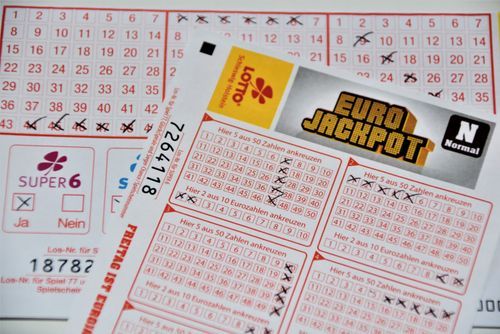Top 5 Ways to Gamble Responsibly and Prevent Addiction

The rush of excitement, the blood pumping through your veins, the feeling that you’re taking control of your life; gambling can bring all these things and more to your life. Whether you like playing poker with friends after work or hitting the slots on a weekend getaway, gambling can be an enjoyable activity for most people. However, we all know that not everything in life is a game. Too often we see news stories about people who have become addicted to gambling and lost everything as a result. The same can also be said about drinking or any other activity that is fun in small doses but has the potential to become an addiction for some people.
Why do People Become Addicted to Gambling?
There isn’t an easy answer for why some people become addicted to gambling and others don’t. Addictions are complicated, and each person’s experience with them is different. However, there is one common theme among all addictions: they occur because of a desire to feel pleasure and avoid pain. If you’re not sure why you would want to gamble in the first place, you might be surprised to learn that much of the joy that comes from gambling comes from the release of dopamine in the brain. Gambling releases dopamine, the same hormone responsible for that “high” you get from drugs or other addictive activities, which is why it can be so addicting. The release of dopamine is also what causes cravings when you’re trying to break an addiction. When that dopamine gets released again, you get that same “high” you got from your first experience, which can make it difficult to resist the urge to gamble again. The more you gamble, the more frequently your brain will release dopamine. This can cause a buildup of dopamine in your system, which can lead to addiction if you aren’t careful.
Know the warning signs of gambling addiction
If you’re worried that you’ve crossed the line from enjoying gambling to becoming addicted to it, there are telltale signs that you should be aware of. If you find yourself experiencing more than just a couple of these signs, it may be a good idea to take a step back and evaluate how serious your relationship with gambling is. These warning signs include: – You’re spending more money than you can afford on gambling. – You’re going to drastic lengths to get more money to gamble with. – You’re sacrificing other important aspects of your life to gamble more. – Gambling is interfering with your relationships. – You experience extreme cravings to gamble. – You feel a strong need to gamble, even when it’s not in your best interest.
How to Gamble Responsibly
If you’re worried that gambling is becoming too much of a focus in your life and that you may become addicted to it, you can take a few steps to reduce your risk. If you’re concerned that gambling is taking a toll on your mental health, taking a break from it may be a good idea. You don’t want to let gambling become so consuming that it takes away from important aspects of your life. There are also several other ways you can gamble responsibly. These include: – Set limits on how much you gamble. – Stay away from games that have the potential to be addictive. – Find ways to relax or have fun without gambling. – Stay in communication with other people about your gambling. – Remember that gambling isn’t a good way to make money. – Remember to take care of your health.
1. Don’t Bet the Money You’re Earning or Needing for Important Things
No matter what kind of gambling you enjoy, it’s important to keep in mind that you can’t bet more money than you’re willing to lose. If you gamble with money that you’re hoping to use to pay rent or buy groceries, there’s a higher chance that you’ll lose that money. When you’re betting money that you’re counting on to support you, there’s a higher chance that you’ll get too wrapped up in the gambling experience and risk losing it all. If you’re betting money that you’re hoping to use to fund your retirement or other important goals, you’re also gambling with a high risk of losing all of it. You may not be able to stop yourself from getting too wrapped up in the gambling experience if you’re betting money that you’re hoping to use for the rest of your life.
2. Avoid games with unlimited free spins
One of the most common signs that you’re playing a game with the potential to be addictive is that it has unlimited free spins, jackpots, or other types of bonuses. If a game has a “one-in-a-million” chance at winning a jackpot, you’re probably not playing a game with the potential to be addictive. However, many of the most addictive games feature bonuses that can be triggered at almost any time. These types of games can be very difficult to walk away from, and they may lead you to gamble more than you can afford to lose.
3. Take Breaks in Between Sessions
If you’re playing games that you know have the potential to be addictive, it may be a good idea to take a break in between sessions. If you know that you’re going to be playing for a few hours, it may be a good idea to stay away from the game for the rest of the day or even a couple of days. Taking breaks between gaming sessions can help you keep your sanity and avoid the urge to keep gambling. It also gives you time to reflect on the gaming session you just finished and notice your cravings for the game. If you notice that you’re craving the game, it may be a good idea to take a break from it for a couple more days.
4. Limiting Yourself to Only One Form of Gambling
If you have a healthy relationship with gambling, you probably enjoy playing multiple games. You may like playing different types of poker or other card games, visiting the slots, or trying your hand at sports betting. However, if you’ve crossed the line into an unhealthy relationship with gambling, you may want to focus your attention on only one game. If you’ve become addicted to slots, it may be better to limit yourself to playing poker. If you’re addicted to sports betting, it may be better to only play poker. While this isn’t going to prevent you from being addicted to gambling, it may make it easier to focus your attention on one game and avoid being overwhelmed by the many choices you have. This can also help you avoid burning out on the one game you choose to focus on.
5. Remember that gambling isn’t a good way to make money.
Gambling can be a lot of fun, but it’s important to keep in mind that it’s not a good way to make a living. If you’re gambling with the hope that you’ll make enough money to support yourself, you may want to rethink your strategy. Most people who gamble for a living end up losing money. If you’re gambling with the hope that you’ll be able to make a living off of it, you may want to consider another career path.
Remember to take care of your health
If you’re worried that you’re becoming addicted to gambling, it may be a good idea to take some time to prioritize your mental health. If you can identify the source of your cravings, you may be able to find an outlet for them that doesn’t involve gambling. If you don’t know what’s causing you to crave gambling, it may be a good idea to talk to a therapist about your cravings. Your therapist can help you come up with ways to cope with your cravings that don’t involve gambling.

